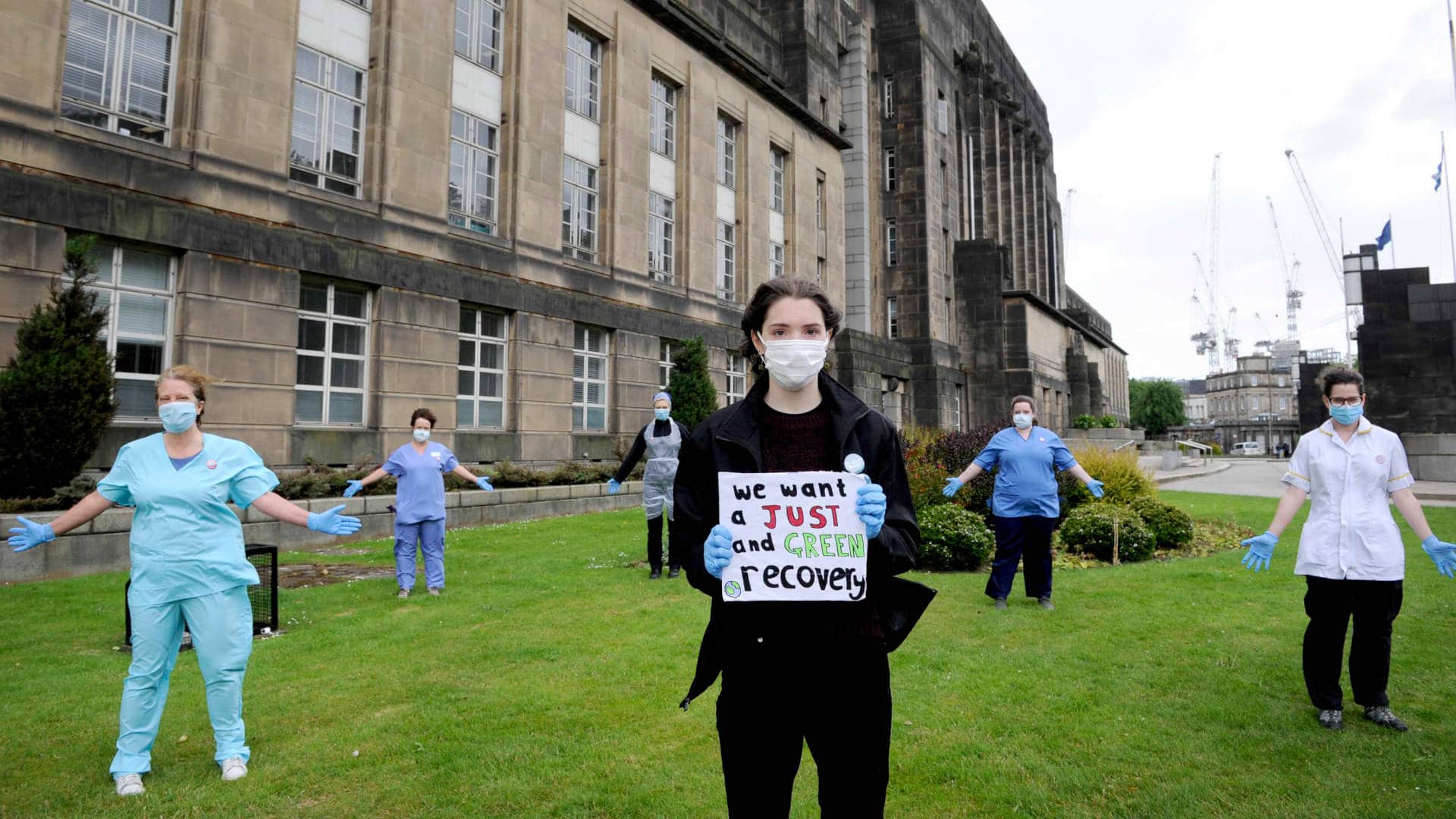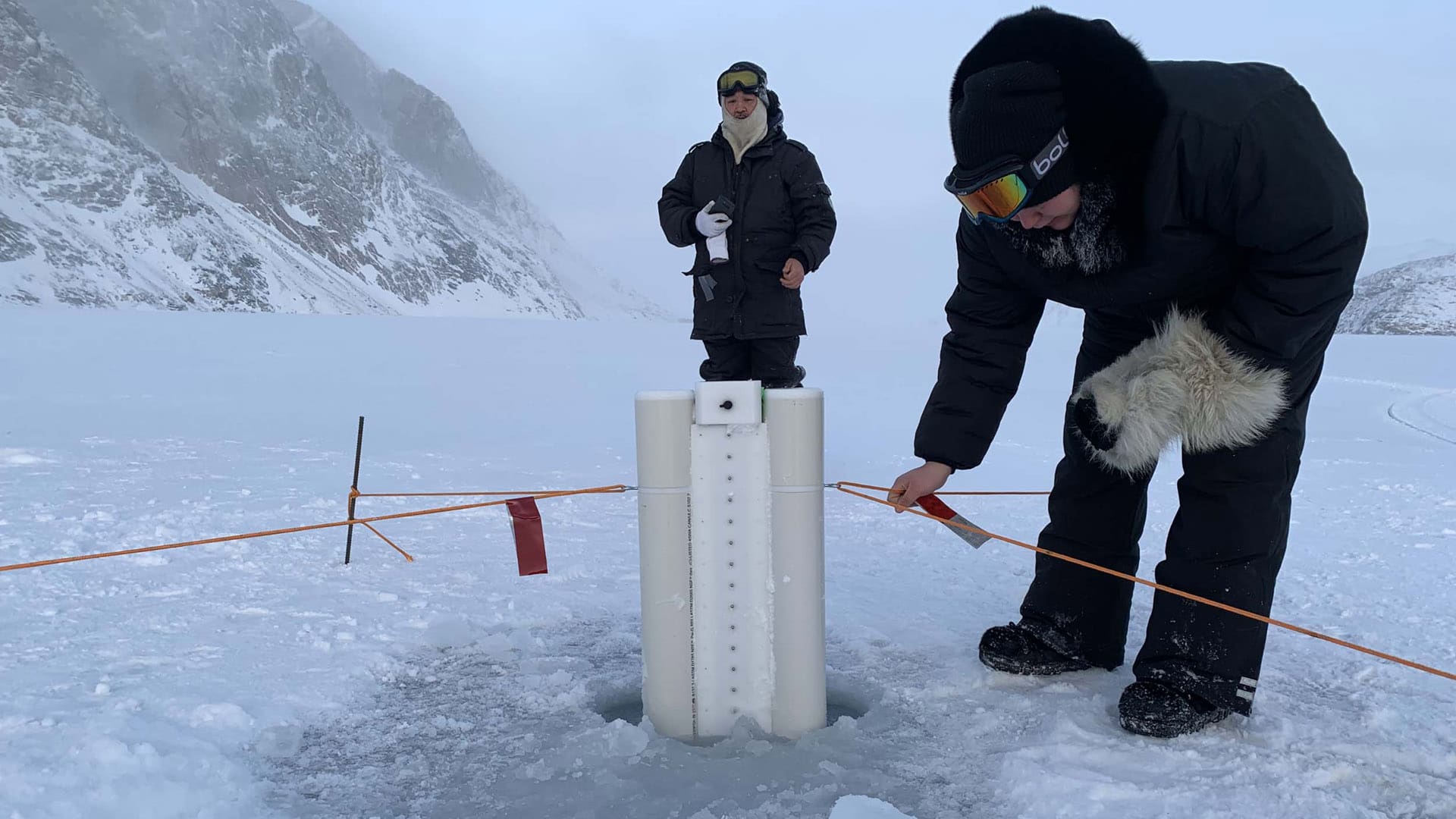The Covid-19 pandemic has wrought devastation across the globe, but it has also demonstrated the best of humanity: Billions of people have taken measures to slow the spread of the virus, protect the most vulnerable members of society, and ensure that those who need medical care are able to access it. The pandemic has shown that, in a crisis, we are perfectly capable of acting selflessly. We understand the value of working together and the power that we can have when we do so successfully.
We are still battling Covid-19, but it is not too early to take the lessons we’ve learned and apply them to another battle we all must fight: the climate crisis. Like Covid-19, climate change is affecting us all. It is already devastating communities, impacting public health, and taking a toll on economies. And it is exacerbating disparities, with poor and vulnerable populations being affected the most. But the same tools that we have sharpened during the pandemic — a willingness to engage with scientific literature, the will to take action, a sense of global connection — can be used to help address the health of our planet.
Covid-19 has compelled us all — scientists and nonscientists alike — to become fluent in reading trend lines, dissecting scientific papers, tracking disease rates, and embracing uncertainties. We can use these same skills to educate ourselves about how our planet is changing and will change. We should all understand climate science as well as we have come to understand public health science.
The science surrounding Covid-19 has also led us to take unprecedented, concrete actions. Not only have entire populations stayed at home to prevent the spread of the coronavirus, many of us are reevaluating our daily activities, including practices — such as our travel and eating habits — that can be harmful to the planet.
Make no mistake, our climate crisis won’t be solved by these actions alone. We need governments to act together to incentivize changes in the energy sources we use, while also supporting disadvantaged populations. Covid-19 has shown us that we need to address these issues as a global community. The pandemic — like climate change — knows no borders and is affecting everyone around the world. We may be isolated, but we are connected now more than ever before, having gained a newfound understanding and empathy for people in different parts of the world who are all battling the same pandemic. Likewise, we need to understand that climate change is not just happening in one country or one part of the world, but that it, too, is our common enemy. It will call for the sharing of scientific data and information. And it will call for collectively changing our habits.
The Covid-19 pandemic has underscored the importance of trusting in science, taking collective action, and thinking globally. We must apply these lessons to the climate crisis. Glaciers continue to melt, and sea levels continue to rise. Carbon dioxide levels in the atmosphere are higher than at any point in at least the past 800,000 years, and they have continued to increase even through the pandemic. Because most of this carbon dioxide will remain in the atmosphere for hundreds of years, climate change is not going away. Hurricanes, floods, and wildfires will continue to increase in frequency and severity, affecting millions of people around the world.
But science can help us build a thriving, ethical, and sustainable future for everyone. We scientists need to take our climate models from our laboratories and into people’s homes, and take climate science from being “usable” to being “used.”
Many summers, I’ve traveled to Greenland to conduct field research on the vast, melting Greenland ice sheet. I won’t be traveling there this summer, but I don’t need to see the glaciers with my own eyes to know our planet is in trouble. I also don’t need to be in the field to connect with my global colleagues and figure out how we can work together, as a worldwide community, to address our climate crisis.
I hope next summer I can return to Greenland with the goal of better understanding the fragility of the ice sheet, so that we might better forecast how fast seas will rise. But even more than that, I hope I will see people poring over climate change models and taking actions to fight for our planet, much like we pulled together to fight this pandemic.
Addressing the climate crisis will take strong global leadership, but I encourage us all to take the lessons we’ve learned from the pandemic and use them to help save our planet.
Dr. Robin E. Bell is president of the American Geophysical Union and a Palisades Geophysical Institute Lamont Research Professor at Columbia University’s Lamont-Doherty Earth Observatory.












Comments are automatically closed one year after article publication. Archived comments are below.
CO2 is a plant food and has helped grain yields in last 25 years. Reducing Co2 could harm future grain yields and may also hurt world forestry. Climate adaptation is the KEY!
It’s not really about “saving the planet”. Planet Earth will continue on fine with or without Homo sapiens. If however, Homo sapiens are stupid or uncaring enough to wipe themselves out, that’s another issue.
Even the AGU executive has drunk too much kool-aid and still believes CO2 is a culprit.
There is one overarching lesson: VOTE!